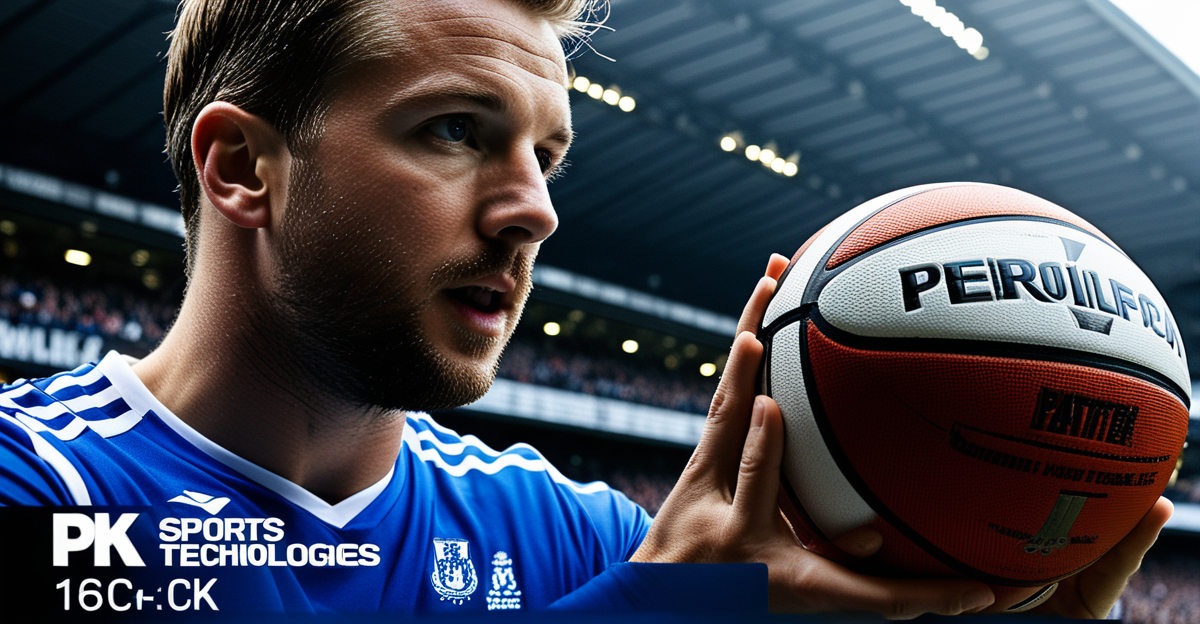Emerging Technologies Set to Impact UK Sports
The impact of technology in UK sports is accelerating rapidly, driven by a variety of emerging technologies that promise to reshape training, competition, and fan engagement. Current innovation trends reveal a surge in digital tools designed for real-time analysis, performance enhancement, and immersive experiences. For athletes, future sports technology like wearables and AI-based tracking systems offer precise monitoring of physical metrics, enabling smarter training and injury prevention. Teams benefit from enhanced tactical insights through data-driven approaches, improving game strategies significantly.
Furthermore, fans experience a richer connection with sports through immersive technologies such as augmented reality and interactive platforms. These tools transform passive viewing into an engaging, participatory event. The industry’s readiness, however, varies—with some sectors embracing technology swiftly, while others face challenges due to infrastructure limitations or cultural resistance.
Additional reading : How Are UK Sports Venues Adapting to Environmental Challenges?
To maximize benefits, stakeholders must focus on integrating these innovations seamlessly while maintaining the cherished traditions of UK sports. This careful balance underlines the importance of investing in education and robust digital frameworks. Ultimately, the evolving technology landscape offers immense potential, but its success hinges on thoughtful adoption designed to elevate performance and fan experience alike.
Artificial Intelligence Revolutionising Sports Performance and Management
Artificial intelligence (AI) in UK sports is transforming how athletes train, how teams strategize, and how organisations manage operations. AI-driven sports analytics provide precise insights that boost athlete performance and reduce injury risks. For example, machine learning models analyse player movement patterns, predicting potential strain before injuries occur. This proactive approach to performance technology helps medical teams intervene early and tailor recovery programs effectively.
Also to discover : How Are UK Sports Venues Adapting to Environmental Challenges?
Teams and coaches leverage AI for tactical analysis, using vast datasets to identify opponents’ tactics and optimize their own strategies. AI algorithms process game footage and stats swiftly, highlighting strengths and weaknesses that might go unnoticed through manual review. This level of detailed analysis enhances decision-making during matches, pushing teams to higher competitive standards.
Beyond the field, AI streamlines administration by automating ticketing processes and personalising fan interactions. Chatbots and virtual assistants improve engagement, providing fans with real-time updates and tailored content. The use of AI in UK sports thus not only sharpens athletic and tactical prowess but also elevates the overall fan experience through innovative, efficient management solutions.
Wearable Technology and Performance Tracking
Wearable tech in sports has become a cornerstone of sports performance tracking, providing athletes and coaches with precise, real-time data. These devices measure key biometrics such as heart rate, movement patterns, and fatigue levels continuously during training and competition. The immediacy of this information allows for timely adjustments, enhancing training efficiency and reducing injury risk through proactive monitoring.
Athlete monitoring technology in UK football, rugby, and cricket illustrates how wearables support recovery protocols and optimise performance. For instance, footballers use GPS-enabled vests to track distance covered and sprint frequency, enabling tailored fitness plans. Rugby players benefit from impact sensors which detect high-force collisions, informing medical teams about potential concussion risks early on. In cricket, wearable sensors evaluate pitch speed and player movement to refine techniques and prevent overuse injuries.
By integrating wearable tech in sports, teams gain a competitive edge while prioritising player health. Future sports technology developments promise even more sophisticated biometrics and analytics, further revolutionising athlete care and performance. The widespread adoption of such monitoring tools exemplifies the broader impact of technology in UK sports, marking a significant shift towards data-driven athletic management.
Data Analytics Transforming Game Strategy and Fan Experience
Advanced data analytics in sports has become crucial for optimising both player performance and fan engagement in the UK. Teams now use sophisticated sports data platforms to analyse match statistics, player fatigue, and opposition tactics in real time. This analytical edge enables coaches to make evidence-based decisions, adjust line-ups, and refine game strategies swiftly during matches.
How does data analytics improve fan experience technology? By mining vast datasets on fan preferences and behaviour, clubs personalise content delivery, offering tailored highlights, interactive stats, and customised notifications. This deepens engagement, turning spectators into active participants rather than passive observers. Enhanced fan experience technology includes immersive apps and interactive platforms that deliver exclusive insights, fostering loyalty and boosting attendance.
Security and ethics are also key: how is data protected in UK sports? Organisations prioritise robust cybersecurity measures to safeguard player and fan information, adhering to strict regulations. Transparent data governance ensures ethical handling, maintaining trust in emerging technologies in sports.
In summary, the impact of technology in UK sports via data analytics extends beyond the pitch, revolutionising strategic planning and creating personalised, engaging experiences for fans while emphasizing ethical data use and security.
Emerging Technologies Set to Impact UK Sports
Emerging technologies in sports continue to redefine the impact of technology in UK sports, driving innovation across training, competition, and audience engagement. Current trends highlight rapid adoption of future sports technology such as AI-enhanced devices, wearable sensors, and immersive digital platforms. These tools provide athletes with detailed data for tailored training and injury prevention, while teams gain strategic advantages through advanced analytics.
For fans, technologies like augmented reality and interactive apps deepen engagement, creating fully immersive viewing experiences both in stadiums and at home. The UK sports industry’s readiness varies; professional clubs often lead adoption, investing in digital infrastructure and expertise. Conversely, grassroots levels may face hurdles due to cost and access to technology.
Successful integration depends on aligning these innovations with existing sports cultures and governance. Educating stakeholders and ensuring technology complements rather than disrupts traditions is key. Overall, the incorporation of emerging technologies in sports presents vast opportunities to elevate performance, safety, and fan interaction, marking a decisive shift in UK sports’ technological landscape.
Emerging Technologies Set to Impact UK Sports
Emerging technologies in sports are driving a major shift in the impact of technology in UK sports, with future sports technology rapidly evolving to affect every aspect of the game. These innovations include AI-enhanced tools, sophisticated wearable devices, and immersive digital platforms that elevate athlete training, team strategy, and fan experience simultaneously.
Athletes benefit instantly from more precise data collection and analysis, allowing for tailored training regimens and injury prevention. Teams utilise advanced analytics to sharpen game tactics and in-match decisions, while fans engage more deeply through interactive apps and augmented reality features.
The UK sports industry’s readiness for such technological transformation varies. Elite clubs tend to lead adoption due to greater resources and access to expertise, investing heavily in infrastructure that supports these innovations. However, grassroots and amateur levels face barriers, including cost and limited digital literacy, which could slow overall progress. Addressing these disparities requires targeted education and strategic investment to ensure emerging technologies in sports reach their full potential across all levels.
By prioritising seamless integration that respects the traditions of UK sports, stakeholders can harness these advancements responsibly while unlocking new opportunities for performance enhancement and fan satisfaction.
Emerging Technologies Set to Impact UK Sports
Current emerging technologies in sports are reshaping the UK sports landscape rapidly. Key areas of innovation include future sports technology such as AI-powered devices, advanced wearables, and immersive digital tools that offer new ways to enhance athlete training, team strategy, and fan engagement. These technologies provide athletes with granular performance data, enabling tailored coaching and injury prevention methods directly informed by real-time metrics.
Teams use these tools to analyse not only player fitness but also opposition patterns, gaining tactical advantages on the field. Meanwhile, fan experiences are enriched by interactive platforms and augmented reality that invite deeper participation beyond traditional viewing.
Regarding the impact of technology in UK sports, the industry’s readiness varies significantly. Elite professional clubs tend to adopt these innovations more quickly due to greater financial resources and infrastructure, while grassroots and amateur organisations often confront barriers such as cost and limited technical expertise. Bridging this gap requires focused investment and digital education initiatives to ensure equitable access to future sports technology across all levels.
Ultimately, successful adoption depends on thoughtful integration that upholds the cultural values of British sports while embracing these transformative tools. The continued evolution of emerging technologies in sports promises to enhance competitiveness, safety, and fan connection throughout the UK.




